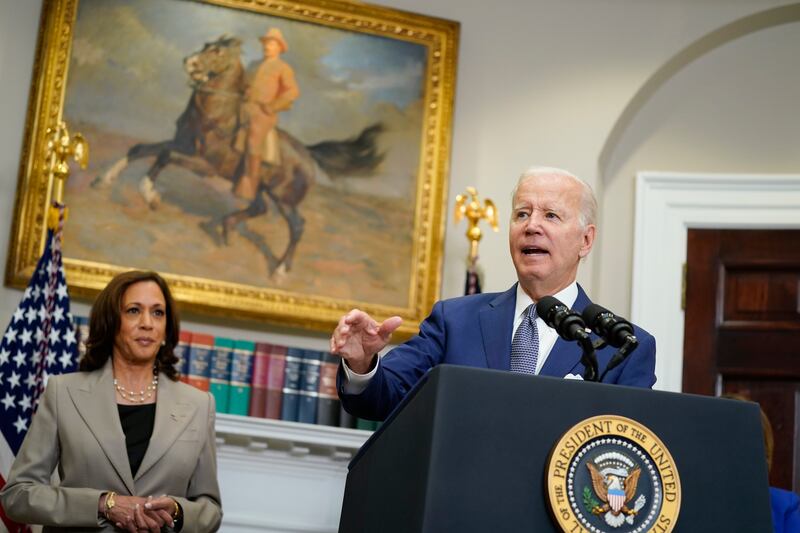President Joe Biden is expected to sign an executive order on Wednesday directing the Health Department to advance access to patients traveling across state lines for abortion services.
The executive order is part of efforts from the Biden administration to protect access to reproductive health care after the Supreme Court’s decision to overturn Roe v. Wade.
This is the second executive order Biden has signed to address abortion rights. The first, signed in July, provided some federal protections to reproductive health care access.
What will the executive order do?
- The order asks Health and Human Services to consider advancing access to reproductive care such as allowing Medicaid funds to be used for those who travel out of state for abortion care.
- It directs HHS to ensure health care providers comply with federal nondiscrimination laws by allowing women to receive medically necessary care without delay.
- The order will also promote measuring “the impact that diminishing access to reproductive health care services has on women’s health” through directing HHS to improve data collection on maternal health.
The order is set to be signed at the first meeting of the interagency Task Force on Reproductive Healthcare Access which was created after the Supreme Court’s decision to overturn Roe v. Wade.
The task force is led by Vice President Kamala Harris and is meant to drive efforts to protect access to reproductive health care services.
On Tuesday, the Biden administration sued Idaho to block the state’s near-total abortion ban saying Idaho’s abortion law has “extremely narrow” exceptions making it against federal law.
Also on Tuesday, Kansas residents rejected a state constitutional amendment that would have allowed the state legislature to further restrict abortion access.

